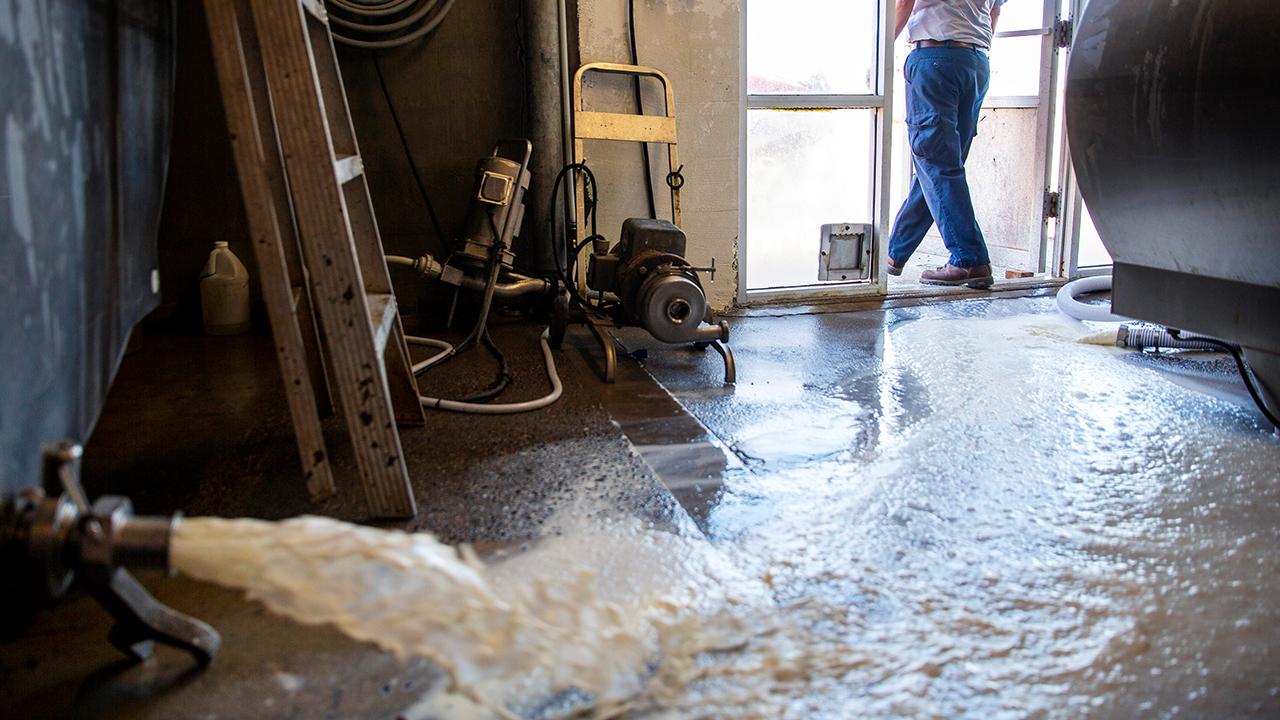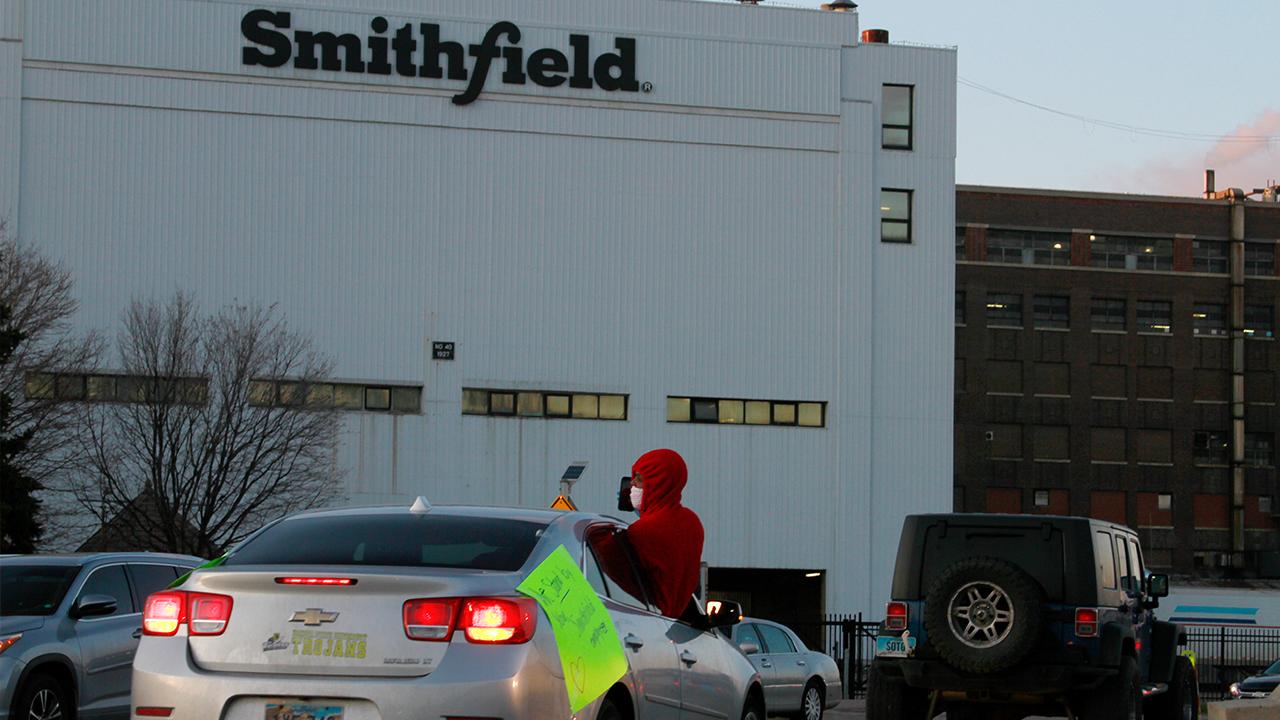Coronavirus lays bare America's looming food crisis: Mercy Chefs Founder
Access to food is fast becoming one of the critical needs growing out of the pandemic
Get all the latest news on coronavirus and more delivered daily to your inbox. Sign up here.
By any objective measure, the United States was not prepared to confront the full fury of the coronavirus pandemic that is only now shaking us to full consciousness.
For too long we have dismissed the role of government in carrying out the role for which governments are principally created: to protect the safety and wellbeing of their citizenry. While our tendency has been to equate safety with military preparedness, we know – perhaps now more than ever – that governments at all levels have an intrinsic responsibility to assess, plan, prepare and, when the winds of a crisis start to blow, to keep us safe.
TREASURY SAYS SOME PUBLIC COMPANIES NOT ELIGIBLE FOR SMALL BUSINESS LOANS AFTER BACKLASH
Yet, the government has repeatedly stated that it is the faith-based community that bears the bulk of rapid and effective response.
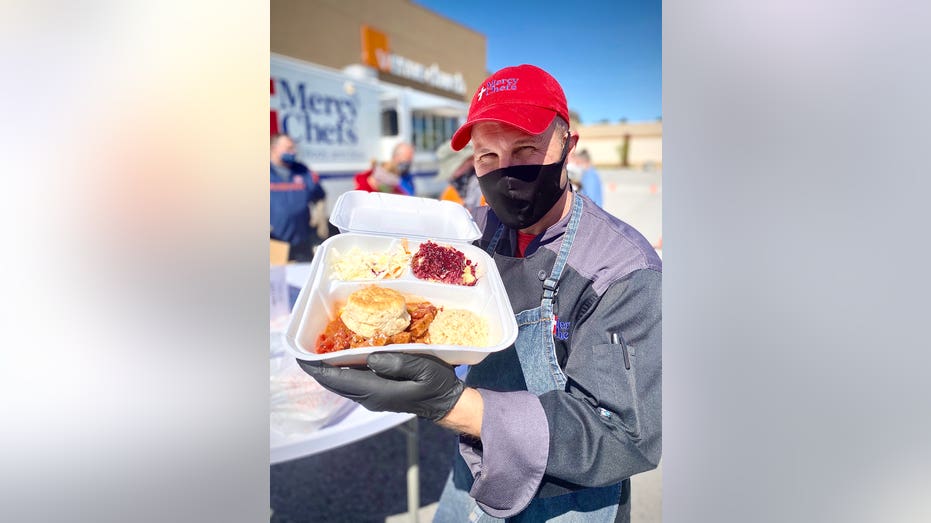
At Mercy Chefs, we have seen firsthand over the past 13 years how the government is essential, particularly in times of crisis. When we arrive on the scene of a disaster – post-hurricane, post-tornado, post-flood – we often operate shoulder to shoulder with state and local law enforcement.
Access to food is fast becoming one of the critical needs growing out of the pandemic, and the stories from throughout the country are unrecognizable to many Americans.
Together with other nonprofit organizations, we work collaboratively to see that the needs of the victims – as well as those of the responders – are met. Everyone has an important, integrated role. Ours focuses on feeding those on the ground, serving professionally prepared meals to victims, volunteers and first responders, mostly through our mobile kitchens.
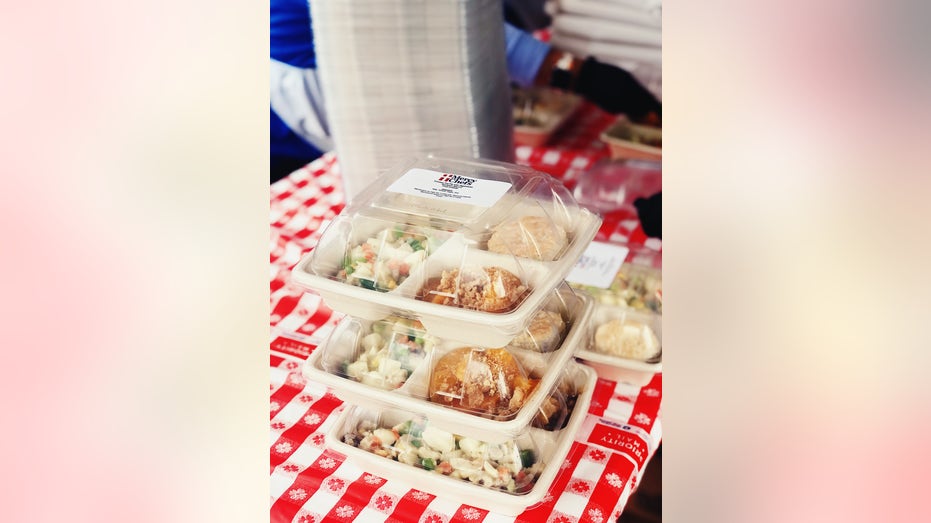
Mercy Chefs freezer meals
Over the years, we have served more than 2.2 million meals throughout our nation and beyond. When the COVID-19 pandemic began to reach a crisis level in the United States, our teams were still dishing up meals in Panama City, Fla., where residents still are recovering from Hurricane Michael, and more recently, in Nashville, still reeling from the devastating tornadoes that hit there last month.
Now, with a full-throated pandemic before us, the call for our services seems louder than ever.
Access to food is fast becoming one of the critical needs growing out of the pandemic, and the stories from throughout the country are unrecognizable to many Americans.
CORONAVIRUS FORCES DAIRY FARMERS TO DUMP MILK MEANT FOR RESTAURANTS
Outside Pittsburgh, the line of cars for the local food bank stretched for more than a mile where 1,700 families waited as long as five hours for emergency food supplies. With more and more people out of work, one national network of 600 food banks reports that demand for food is up 40 percent. Compounding the problem is that their volunteers, many of them senior citizens, stopped showing up for fear of contracting the virus.
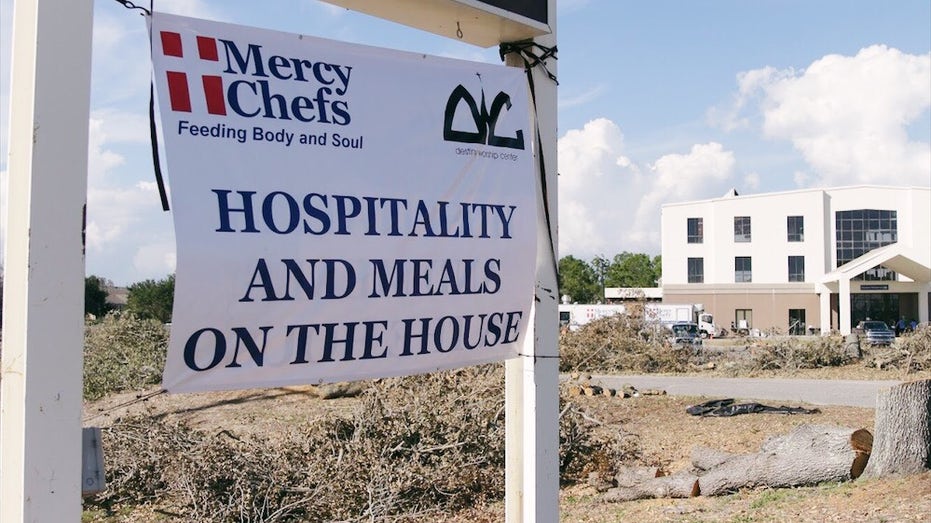
In our hometown of Portsmouth, Virginia, where we opened a permanent community kitchen to feed mostly those from high-risk communities about a year ago, we are seeing firsthand the impact that the crisis is having on access to food.
We currently are serving more than 15,000 meals a week – preparing the meals, freezing them and delivering them to adhere to social distancing practices – and today, many of the meals are going to families we have never seen before.
There are lessons to be learned from this rapidly evolving situation, and the instruction has less to do with the pandemic and more to do with how vulnerable our country is when it comes to being able to feed our people, all our people.
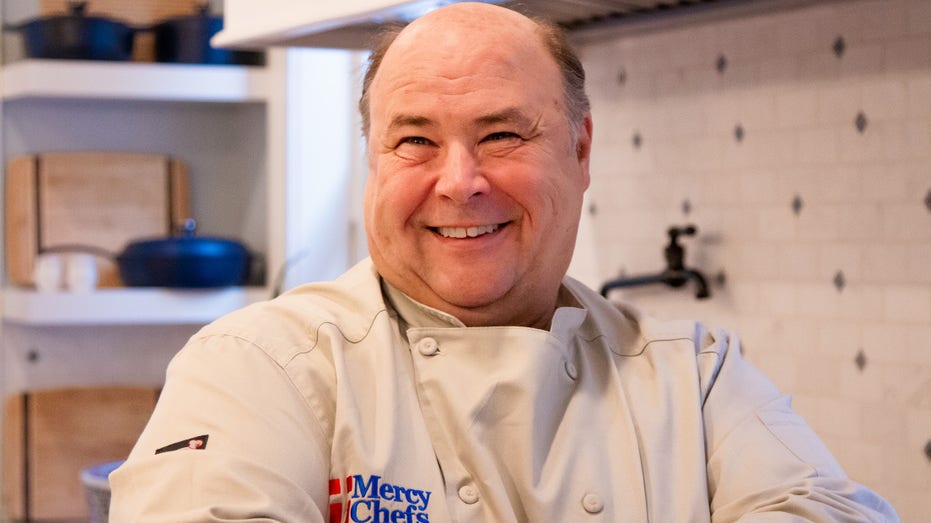
Mercy Chefs Founder Gary LeBlanc
In 2017, one in four children in the United States was receiving support from the government’s Supplemental Nutrition Assistance Program (SNAP), and one in five SNAP recipients were adults living with those children. In addition, close to 5 million senior citizens count on SNAP benefits.
GET FOX BUSINESS ON THE GO BY CLICKING HERE
These grim statistics are today’s warnings signs. While we failed to prepare adequately for the crisis that has recently befallen us, while governments abdicated their responsibility to their basic function of maintaining our wellbeing, we should not and cannot ignore the signals that are staring us in the face: Too many among us awaken each day to food emergencies, staved off only by a few government programs and the generosity of those who support organizations like ours.
Hunger in America, especially now, is not a problem of awareness but indifference. A hungry person, whether child or shut-in, is everyone’s responsibility.
As we focus on battling back against the pandemic, as we lean on one another in a time of collective crisis, let us at the same time look past this immediate horizon.
We must embrace and act on the lessons that are before us. In a country with a bounty of riches as big as our hearts, ensuring that all of us are sitting down to nutritious meals is the next test of our nation’s leadership.
Gary LeBlanc is the founder of Mercy Chefs, a Virginia-based disaster relief and humanitarian aid organization that serves professionally prepared, restaurant-quality meals in emergencies and natural disasters. Founded in 2006 in the aftermath of Hurricane Katrina, Mercy Chefs has served nearly 2.5 million meals. Last week, it served more than 50,000 meals to those in need in more than a dozen American cities as well as to victims and first responders of the deadly tornado in Chattanooga, Tenn. For more information, visit www.mercychefs.com.




















